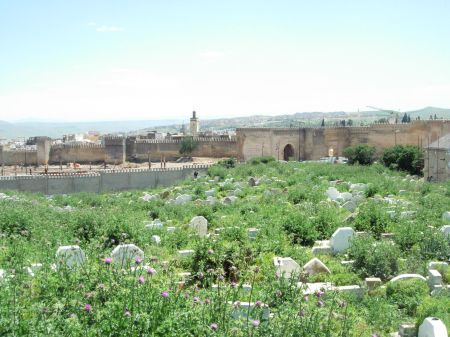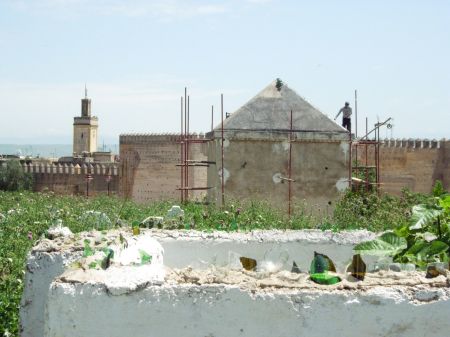I
H1N1
I missed two days of my stay in Jerusalem, along with a visit to Ramallah and a barbeque with Palestinian artist colleagues. Volcanic ash from Iceland is to blame. I believe that volcanic ash from Iceland contain traces of swine flu as well as the hair from Yeti’s fur. Something called Eyjafjallajokull cannot simply pour out plain dull ash and particles of volcanic glass. As if it weren’t enough, Eyjafjallajokull is exactly 1.666 meters high. The Number of the Beast! Do not try to stop planes with something exactly 1.666 meters high and named Eyjafjallajokull ! All traffic on land should be stopped as well, visits to Jim Morrison’s grave should be prohibited and three or four nuclear bombs dropped on Eyjafjallajokull as a measure of precaution. Alternative solution: Chuck Norris should be invited to piss into the crater. I cannot be the only one to have a solid opinion on this matter. Is there a man on this planet who has suffered H1N1, whose flights have been delayed due to the eruption of an Eyjafjallajokull and who has seen the Yeti? If so, I would love to meet him. (21st April 2010.)
II
O CAPTAIN, MY CAPTAIN!
The taxi driver who took me from the Ben Gurion airport to the American Colony Hotel in Jerusalem knew everything about the world and the cosmos we belong to. He had the stance of a street erudite, and didn’t hesitate to talk every step of the way about genesis, molecular biology, climate change and the art of seduction. He talked incessantly and a lot, burying the small car under piles of words. “Where are you from, my friend?” he asked. “Montenegro” I answered. “Well, of course! Hasta siempre comandante! Ecuador, Columbia, Venezuela, Montenegro!” he said . “I’ve been there!”, he said “You live in the most beautiful country in the world! And your women…! You are a lucky man!” he continued. “Thank you! You are right!” I said, deciding this time to not be proclaiming my Mediterranean pride. When I asked when he visited Montenegro he explained that he toured “the most beautiful country in the world” in 1979, while sailing on a British merchant ship named Aurora. I asked him what specifically he was he doing on the ship and he spoke proudly, self-confidently and quietly: “I was the captain”. (21st April 2010)
III
LET’S FORGET
On my return from Casablanca I spent three hours at Istanbul’s airport, drinking the good and expensive Efes beer. A boy in the national costume was selling ice cream. A lady from England was explaining how she should have gotten more ice cream for her 4 Euros. Waving her hands, she kept pointing her finger at the white cream, folded in abundantly decorated circles. As she was passionately explaining how much she appreciates her money, the boy persisted in pointing at the notice board, repeating one sentence: ‘Your last call madam!” Four Euros and an ice cream were enough for the lady in Adidas sneakers to forget reality. I thought that I wouldn’t be sorry if she missed her flight, and moved on. A group of yellow hats overwhelmed the airport hall, holding British flags in their hands smiling dissent enough of any stupidity. The guide’s hat was the biggest and the yellowest. The ugliest. The writing on their hats said: Let’s forget. Oblivion as an assignment and a desirable state. I wondered what it was they wanted to forget, and I wondered where they are going to forget what it is they were wanting to forget. “Where are you traveling to, madame?” and beneath a brink of her yellow hat the mouth spoke: “Jerusalem, Palestine, Ramallah”. I imagined an ad in the Sunday Times: Come visit where blood shedding conflict happens! Forget the stress of your work place, the subway jams, your pet’s indigestion! I wished the ice cream would be 400 Euros. (24 th April 2010)
IV
AZDI AND ICE
Azdi works for 250 Euros a month. Azdi is the guardian angel of my four room/five star/beautiful roof terrace hotel. Azdi’s three-year old daughter’s name is Mersiha, Azdie’s young wife is Farah. The hotel is located in the heart of the Fes medina, and is their only home as well as their job. Three hundred sixty five days, twenty four hours a day. While beautiful black-eyed Mersiha sits at the door step, Azdi and Farah manage the jobs necessary to make guests feel at home. Toilet cleaners, handymen, breakfast makers, polishers of beautiful ceramics, bag carriers, stealthy walkers-along of the half-business smile. They sleep in a small room in the attic. Azdi says that the French owner comes once in three months, looks around, yells a bit, signs some papers and disappears.
At the Istanbul airport I bought a bottle of my favorite whiskey Cutty Shark. Somebody had misinformed me that alcohol is unavailable in Morocco and I believed him. Some time later, the fine local reds convinced me I was wrong. As I sat on the roof terrace with my Slovenian friend and photographer Jaka, I decided to ask for some ice. Azdi was happy he could please me. He took a nicely decorated metal bowl and led me to a dark room at the first floor. A neon-lit bowl saw his pleased smile. He slipped on a rubber glove and slowly pushed his hand into bowels of a Sharp refrigerator. He acted like surgeon, carefully and with passion. I was expecting a handful of diamonds. However he pulled out ice and then, while it was smoking under the neon light, he said passionately, kissing the tips of his fingers: c’est bon! c’est du bon glace! He said it as it was the finest wine, the loveliest treat, some rare spice. Little Mersiha and Farah stood at the door. I asked them to come closer. Mersiha walked over, reached for the ice cube from her father’s hand and put it delightedly in her mouth. She mingled that coldness, smiling, with her parents. I thought: “Many years later, as he faced the firing squad, Colonel Aureliano Buendía was to remember that distant afternoon when his father brought him along to discover ice.” I also couldn’t help but think how wrong our dear Tolstoy was. He should have said, „All unhappy families are alike; every happy family is happy in its own way”. (25th April 2010)
V
APOLO 11
It always feels good to think that there is a person on the other side of planet reading, for example, Hugo von Hofmannsthal, at the same time as I do. On my way to Casablanca, after I mentioned that brilliant Austrian, my Malaysian friend Eddin placed Hugo’s photograph in the New York Times Book Review in front of my face. I believe we were the first people ever, on the planet Earth, to stare at Hugo von Hofmannsthal’s photo on the road between Fes and Casablanca. (26th April 2010)


